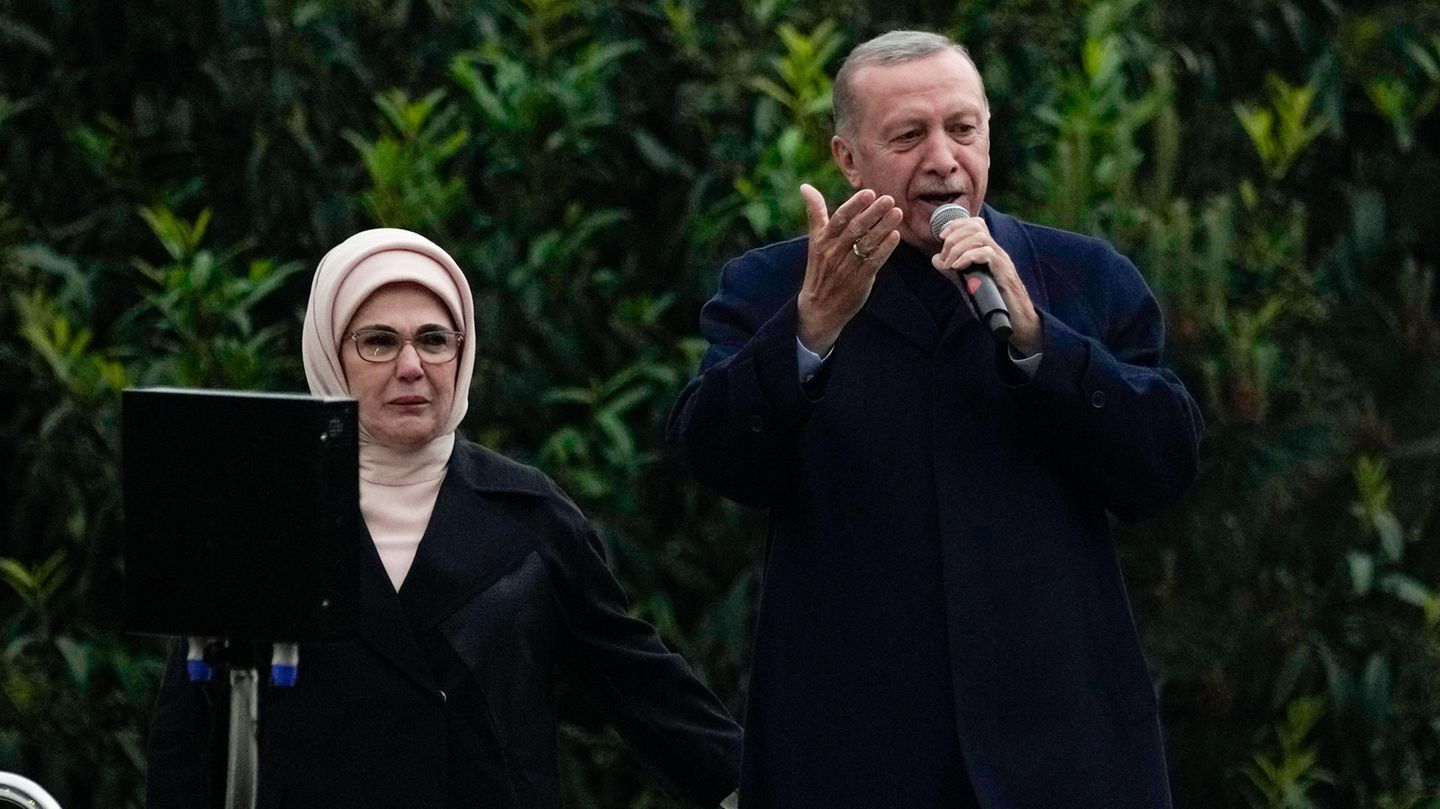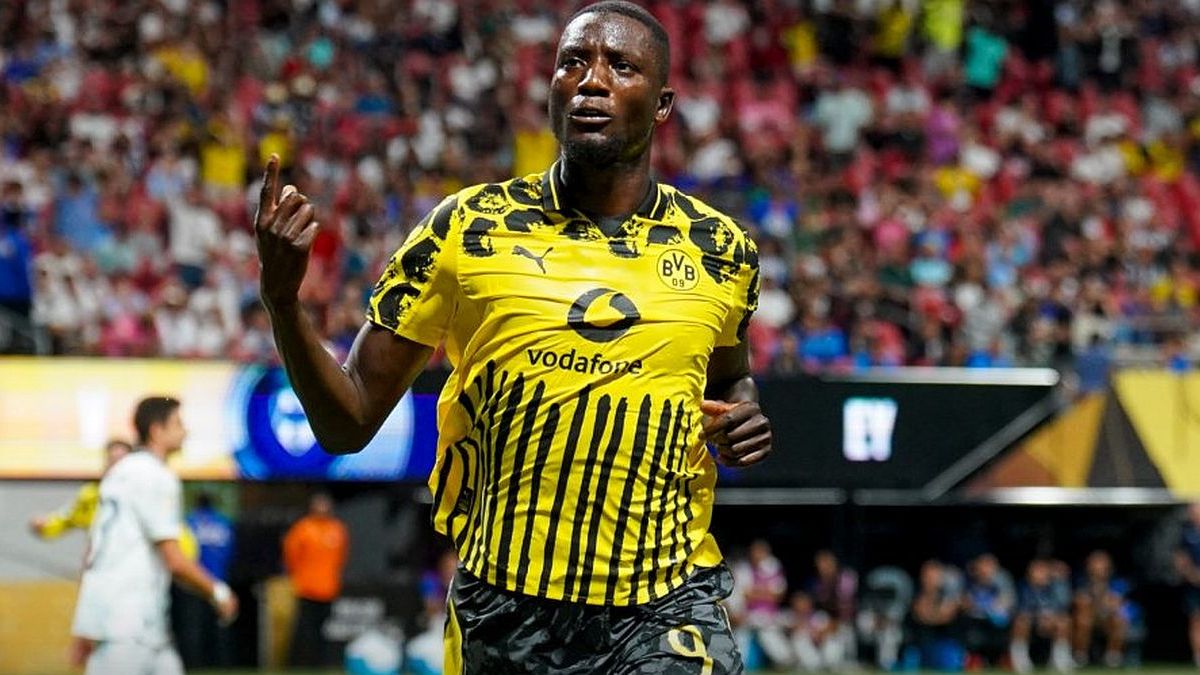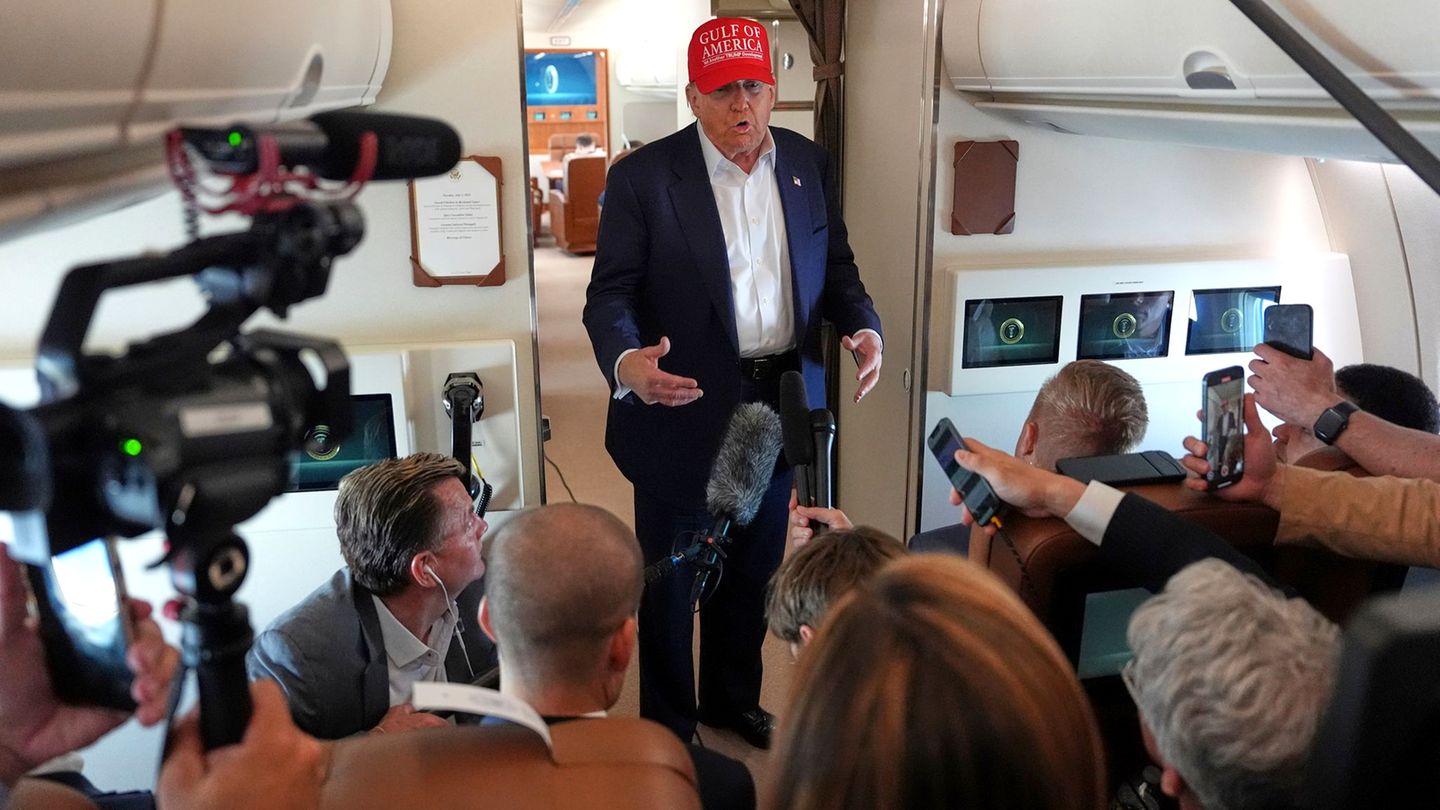Erdogan has done it again. After 20 years in power, Turkish voters have once again voted for the incumbent. Supporters cheer, opponents are shocked.
Turkish President Recep Tayyip Erdogan will remain in office for another five years. The 69-year-old won a runoff against opposition leader Kemal Kilicdaroglu (74) on Sunday. Erdogan received 52.14 percent of the votes, Kilicdaroglu 47.86 percent, according to the electoral authority after counting 99.43 percent.
Erdogan has been elected Turkey’s 13th president, said the head of the agency, Ahmet Yener. Already in the early evening, his supporters filled the streets of Turkish cities, waving flags and celebrating the election victory.
Erdogan has led Turkey for 20 years. On Sunday evening he declared that he would stay with his followers “to the grave”. Since the introduction of a presidential system in 2018, he has more power than ever before. It is therefore feared that he will now govern in an even more authoritarian manner. Internationally, Erdogan’s re-election means another five years with an idiosyncratic partner.
Victory in the second round
Erdogan entered the second round as the favorite after narrowly missing out on an absolute majority two weeks ago. The election was still considered the toughest test in Erdogan’s political career so far. The country is in an economic crisis, the currency has suffered massive losses, and inflation in the country is around 44 percent. The south-east of the country is also struggling with the devastating consequences of the February earthquake.
According to observers, the fact that a majority voted for Erdogan despite the crisis is also due to the government’s control over the media. In an interview shortly before the election, Erdogan explained that economic problems were a myth of the opposition. This statement was not questioned. He tried to outdo the challenger Kilicdaroglu with the accusation of connections to terrorists. The election took place under great tension in the country. Attacks on election observers were repeatedly reported during the vote itself.
Election gifts in the weeks leading up to the election are also likely to have had an impact. “The government spent money like there was no tomorrow. People are doing much better than they were last year,” said political analyst Salim Cevik of the German Press Agency.
Further reprisals feared
During the election campaign, Erdogan sharply attacked the opposition as well as lesbian, gay and queer people. In his first speech after the election, that was also one of his first topics. He should set the tone for his new term in office.
He also owes his victory to new Islamist partners. The Islamic hard-liner parties will help shape the future agenda. It is feared that they could trigger a further step backwards for women in the country.
Erdogan rules with an iron fist anyway. The judiciary is considered to be highly politicized, and a number of government critics are in prison. Observers expect Erdogan to continue on his authoritarian course. In the first round of elections, Erdogan’s alliance had already won a majority in parliament. The opposition will not be able to pose a threat to him there either.
International importance of re-election
Turkey is a NATO member, maintains close ties with Russia and Ukraine, is an actor in the Syrian civil war and is linked to the EU in many ways – in short: Whoever governs Turkey is directly involved in world politics. Erdogan is considered a difficult and unreliable partner who often acts opportunistically. Relations with the USA have been marked by conflict for years, and Erdogan conducted the election campaign with anti-Western slogans. Relations with the EU are strained, among other things, due to numerous human rights violations and tensions over the issue of migration. A new Erdogan presidency promises no turnaround.
Cevik also blames the opposition for their defeat: Kilicdaroglu was not set up early enough. Nor would he have adequately countered the government’s propaganda
The challenger was still the favorite before the first vote on May 14th. He was the candidate of a historically unique party alliance and secured the support of the pro-Kurdish HDP. Kilicdaroglu promised to democratize the country. After the defeat in the first round, he campaigned for votes from the ultra-nationalist camp with much more intensified refugee rhetoric. He was only able to slightly reduce the gap to Erdogan, who started with the support of third-placed right-wing candidate Sinan Ogan.
Promises to voters and challenges
Erdogan does not want to turn away from the controversial low interest rate policy, which experts say is partly responsible for the currency crisis. He wants to reduce inflation to a single digit. He also promises major investments in armaments and infrastructure projects.
Refugee policy was also a key issue in the election campaign. Erdogan’s AKP has intensified its rhetoric under pressure from an increasingly hostile atmosphere in the country, promising repatriations and wanting to enter into negotiations with the Syrian ruler Bashar al-Assad. He promises the people in the earthquake area that he will have new houses built for them within a year.
Source: Stern
I have been working in the news industry for over 6 years, first as a reporter and now as an editor. I have covered politics extensively, and my work has appeared in major newspapers and online news outlets around the world. In addition to my writing, I also contribute regularly to 24 Hours World.




